[Welcome] [Submission] [Camera Ready Instructions] [Organization] [Program] [Panel]
D-SPAN
2012
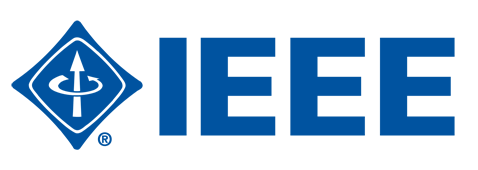

3rd IEEE International Workshop on Data Security and PrivAcy in wireless Networks
In conjunction with IEEE WoWMoM 2012
Monday, June 25, 2012, San Francisco, CA, USA
Submission website: http://edas.info/N11887



Welcome to D-SPAN 2012, the Third IEEE International Workshop on Data Security and PrivAcy in wireless Networks (D-SPAN). The workshop focuses on defining novel problems and developing novel techniques for data security and privacy issues in wireless and mobile networks. With the emergence of data-intensive wireless networks such as wireless sensor networks and data-centric mobile applications such as location-based services, the traditional boundaries between these three disciplines are blurring. This workshop solicits papers from two main categories: (1) papers that consider the security and privacy of data collection, transmission, storage, publishing, and sharing in wireless networks broadly defined, e.g., MANET, cellular, vehicular, ad hoc, cognitive, as well as sensor networks, and (2) papers that use data analytics techniques to address security and privacy problems in wireless networks. The workshop provides a venue for researchers to present new ideas with impact on three communities –wireless networks, databases, and security.
The list of topics includes, but not limited to,
• Location privacy in wireless networks
• Secure data collection and aggregation for wireless sensor networks
• Secure query processing over wireless sensor networks
• Secure and privacy-preserving data streaming
• Key exchange, distribution and management in wireless networks
• Secure data processing in mobile ad-hoc networks (MANET)
• Secure data collection in body-area networks
• Throughput-security tradeoffs in wireless networks
Click here to download the pdf version of the call for papers.


Important dates:
All deadlines are at 11:59pm Pacific Standard Time (GMT-8)
Paper submission:
Tuesday, March 20, 2012
Notification:
Friday, April 20, 2012
Camera ready version:
Saturday, April 29, 2012
Workshop:
Monday, June 25, 2012

Submission
Submission will be managed electronically through EDAS. The paper submission website is http://edas.info/N11887
We welcome original, unpublished manuscripts for 6-page papers inclusive of all references and figures. Papers should report completed results and must not be previously published elsewhere or currently under review for any other publication. Vision papers and descriptions of work-in-progress are also welcome as short paper submissions (4 pages).
-
Papers must be written in English, and formatted according to the WoWMoM Proceedings format.
-
Your submission must be in PDF format. Whatever text processor or formatter you use to write your paper (LaTeX, Microsoft Word, FrameMaker, etc.), please convert the output to PDF before submission.
-
Submission must be limited to 6 pages (short papers limited to 4 pages), single spacing, double column, and must STRICTLY adhere to the template format.
-
The font size used in the text of your submission must not be smaller than 10 points.
-
We must be able to print your paper once it is submitted. Due to the large variety of systems available for formatting papers and producing PDF, this is not always possible for some systems. To maximize the chances that your paper will print correctly, please use only standard printer fonts (e.g., Times Roman, Helvetica, etc.) or standard TeX Computer Modern fonts; other fonts may be used but must be included in the PDF file. The use of standard printer fonts is strongly preferred over TeX fonts, if possible.
-
The paper must be able to print clearly on standard black-and-white printers. Reviewers are not required to view your paper in color.
-
Each accepted paper needs to have a registration to the workshop/conference (a no-show will result in exclusion of the corresponding paper from the IEEE Digital Library).
Please direct any questions regarding paper submission to d-span2012-chairs@edas.info

Organization
|
General Co-Chairs • Sajal K. Das • Krishna Sampigethaya |
Program Co-Chairs • Guevara Noubir • Radha Poovendran
|
Program Committee
|
• Basel Alomair, KACST Saudi Arabia • Tansu Alpcan, The University of Melbourne • Arati Baliga, AT&T Security Research Center • Michel Barbeau, Carleton University • Erik-Oliver Blass, Eurecom • Mooi Choo Chuah, Lehigh University • Mauro Conti, University of Padua • Reza Curtmola, NJIT • Sajal Das, University of Texas at Arlington • Roberto Di Pietro, Università di Roma Tre • Yuguang Fang, University of Florida • Xinwen Fu, University of Massachusetts Lowell • Mohamed Gouda, National Science Foundation |
• Loukas Lazos, University of Arizona • Heejo Lee, Korea University • Donggang Liu, University of Texas at Arlington • Guevara Noubir, Northeastern University • Neal Patwari, University of Utah • Radha Poovendran, University of Washington • Kui Ren, Illinois Institute of Technology • Bo Sheng, University of Massachusetts, Boston • Bishal Thapa, Raytheon BBN Technology • Zhi Wang, North Carolina State University • Wei Yu, Towson University • Nan Zhang, The George Washington University • Sencun Zhu, The Pennsylvania State University |

Program
10:00-10:15 | Welcome |
10:15-11:55 | Session 1: Enhancing Security of Wireless Networks (Chair: Daniel W. Engels, Revere Security) |
Detecting Receiver Attacks in
VRTI-Based Device Free Localization | |
Hiding Contextual Information in WSNs | |
Living with Boisterous Neighbors:
Studying the Interaction of Adaptive Jamming and
Anti-Jamming | |
Efficient Broadcast
Communication in the Presence of Inside Attackers: A
Non-cooperative Game | |
11:55-13:15 | Lunch Break |
13:15-14:30 | Session 2: Security and Privacy for Networks Broadly Defined (Chair: Patrick Tague, CMU) |
Adaptive and Context-Aware Privacy
Preservation Schemes Exploiting User Interactions in
Pervasive Environments | |
PPS: Privacy-Preserving Statistics
using RFID Tags | |
Lightweight Host and User
Authentication Protocol for All-IP Telecom Networks | |
14:30-14:45 | Coffee Break |
14:45-16:00 | Session 3: Emerging Attacks in Wireless Networks (Chair: Bishal Thapa, Raytheon BBN Tech.) |
Traffic
Analysis Attacks and Countermeasures in Wireless Body Area Sensor Networks | |
How To Develop Clairaudience
- Active Eavesdropping in Passive RFID Systems | |
Association Attacks: Identifying
Association Protocols | |
16:00-16:15 | Coffee Break |
16:15-17:45 | Session 4: Panel (Privacy of Future Computation and Communication Platforms) |
(Jointly organized with the Autonomic and Opportunistic Communications (AOC) workshop)
Panel moderator:
Krishna Sampigethaya |

Camera Ready Instructions can be founded here

Panel
Privacy of future computation and communication platforms
Jointly organized with the AOC workshop
| Panel Moderator: | Krishna Sampigethaya, Boeing Research & Technology | |
| Panelists | ||
| Levente Buttyán was born in 1970 in Salgótarján, Hungary. He received the M.Sc. degree in Computer Science from the Budapest University of Technology and Economics (BME) in 1995, and earned the Ph.D. degree from the Swiss Federal Institute of Technology - Lausanne (EPFL) in 2002. In 2003, he joined the Department of Telecommunications at BME, where he currently holds a position as an Associate Professor and leads the Laboratory of Cryptography and Systems Security (CrySyS). His main research interests are in the design and analysis of secure protocols and privacy enhancing mechanisms for wireless networked embedded systems (including wireless sensor networks, mesh networks, vehicular communications, and RFID systems). For more information, see http://www.hit.bme.hu/~buttyan/ |
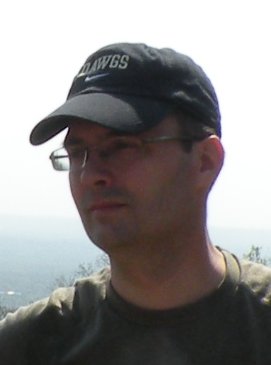 |
|
| Sajal K. Das is a University Distinguished Scholar Professor of Computer Science and Engineering and the Founding Director of the Center for Research in Wireless Mobility and Networking (CReWMaN) at the University of Texas at Arlington (UTA). During 2008-2011 he was Program Director at the National Science Foundation in the Division of Computer Networks and Systems. His broad research interests include wireless and sensor networks, mobile and pervasive computing, smart physical systems, security and privacy, cloud computing, social and biological networks, applied graph theory and game theory. For more information, see http://ranger.uta.edu/~das/ |
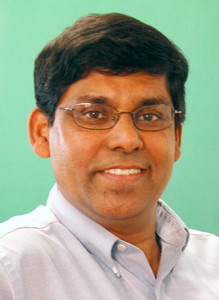 |
|
|
Philip Ginzboorg is a Principal Researcher at the Nokia Research Center (NRC) in Helsinki, Finland. He holds an MSEE from Helsinki University of Technology. Philip joined the NRC in 1995 after working for several years on switching software development in Nokia Networks. Since joining NRC, he has contributed to Nokia research and product development in the areas of e-commerce, wireless security and ad hoc networks. Philip is a co-author of a book, has several scientific publications and holds many patents. |
 |
|
| Loukas Lazos is a faculty member of the Electrical and Computer Engineering Department at the University of Arizona. Before joining the University of Arizona, I was a co-director of the Network Security Lab at the University of Washington. I received my Ph.D. and M.S. degrees in Electrical Engineering at the University of Washington. I obtained my undergraduate diploma in Electrical and Computer Engineering at the National Technical University of Athens, Greece. My current research interests are in the areas of security and privacy, networking, and wireless communications, focusing on identification, modeling and mitigation of network security vulnerabilities, visualization of network threats, and analysis of network performance. For more information, see http://www2.engr.arizona.edu/~llazos/ |
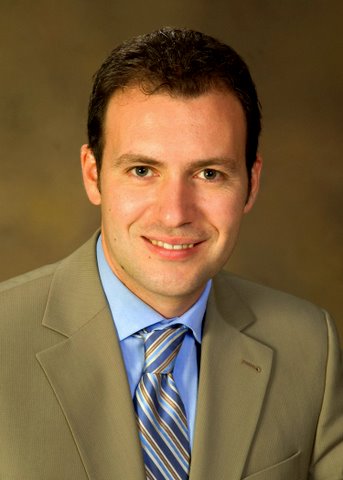 |
|
| Melek Önen is a senior researcher at EURECOM. Her current research interests are the design of security and privacy protocols for various systems and communication networks such as cloud computing, ad hoc networks, sensor networks, opportunistic networks and social networks. She was/is involved in many European and national French research projects. She holds a PhD in Computer Science from ENST (2005); her thesis was focusing on securing multicast communications in satellite networks. For more information, see http://www.eurecom.fr/~onen/ |
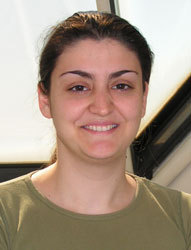 |
|
